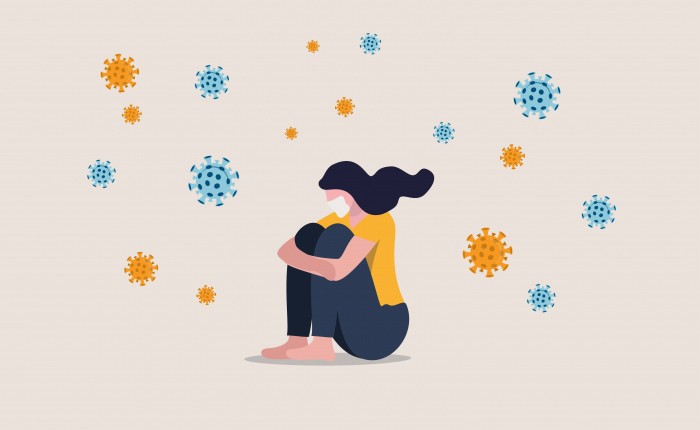Pandemic–induced stress may do you no good: Psychologist recommends 5 essential healthy mind tips

The second wave of the pandemic continues to witness the constant struggle for the mental well-being of everyone. This pandemic has not only impacted our physical health but has also increased our social and economic hardships by challenging people’s mental wellness. Last one year, has taught us that the relationship between the body and mind matters is very crucial. COVID-19 impacts the brain in numerous ways which include fatigue and depression – even more so in mild cases.
The pandemic has introduced us to a new normal – be it our work, lifestyle or interactions. While Covid-19 has impacted nearly every sector of the economy, it has forced us to make numerous alterations for which we may not be prepared mentally and physically. Along with the looming uncertainty, this situation has challenged our beliefs & cognitions, resulting in fear, anxiety, stress and depression. Millions have lost their jobs, lives and even their loved ones due to COVID. Mankind has experienced irrefutable loss like never before. But there is always a silver lining and we all will fight this together. It is important to check on your mental health, eat a healthy diet, connect with people and stay positive.
5 healthy wellness tips for your mind
During the COVID-19 epidemic, people have experienced negative feelings, such as sadness, anxiety, fear, and even depression. Helping yourself and your family members and keeping a positive attitude will be important as it will help you get through this difficult period. Below are five ways to keep your body and mind strong.
1. Recognize and accept your emotions
When you stay at home for a long time, it is normal to feel upset or anxious. The first step is to recognize and accept these emotions. Accepting your emotions means being honest about your feelings. Don’t suppress your feelings or try to ignore them. Accepting your emotions can actually help you manage them.
2. Maintain a healthy lifestyle
Keep a proper diet that includes varied and nutritious foods. Follow a daily routine and keep a consistent sleep schedule. People who stay at home for a long time may easily have their normal routines turned upside down. Some people may stay up late at night and fail to get up during the day.
Some people may even have sleep problems. And no sleep or lack of sleep may make us feel anxious, pessimistic and depressed. Sleep is important for your personal health. Sleep helps the immune system. And good sleep, especially deep sleep, can reduce anxiety. So, remember to keep a regular schedule during this period.
3. Practice medication and mindfulness

Studies show that meditation or mindfulness can relieve stress, reduce anxiety and fear, and can lead to a more positive outlook on life. Hence, it is advisable to take out ten minutes daily for meditation. Find a quiet place and sit or lay down. Close your eyes and try to relax your body. Focus on your breathing, the inhale and exhale. Don’t worry if you get distracted. Take a moment and calmly bring your focus back to your breathing. Playing soft music in the background or guided meditations can also help.
4. Exercise regularly

Physical exercise is an effective way to relieve stress and reduce anxiety. Even a small amount of physical exercise can immediately improve your mood. And it works for people of all ages. At this time, it is unlikely we can do outdoor exercises, but you should still do some exercise at home. If you need exercise tips, try downloading a fitness app.
5. Social connecting during physical distancing
Humans are social animals. Our need to socialize is not met, it may lead to negative emotions. Fortunately, with everything going digital, it is easy to connect with relatives and friends on calls, video calls and messages, to stay connected with your loved ones.
Let’s look after one another during these tough times. This too shall pass!







